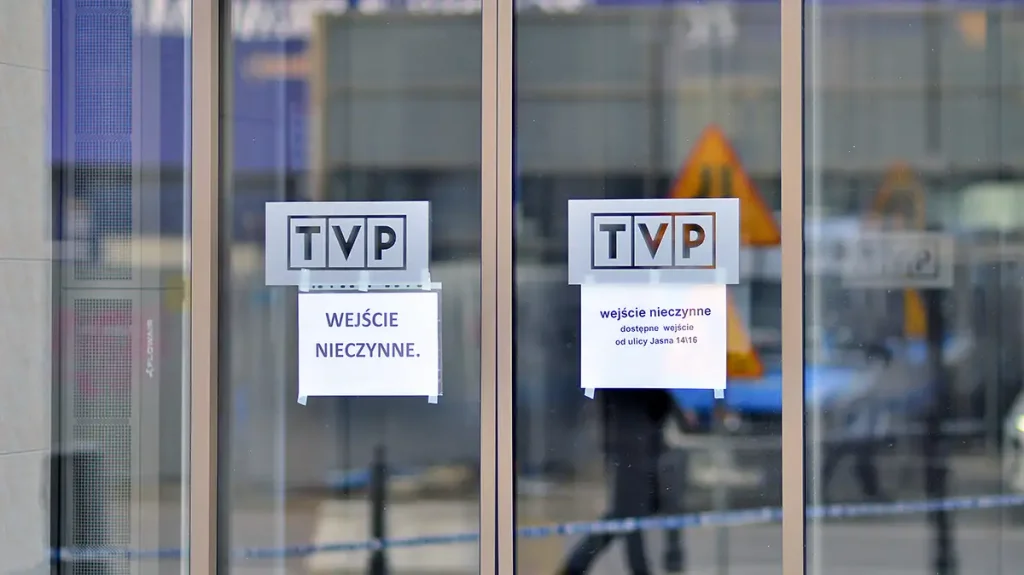What does Bartłomiej Sienkiewicz’s toying with media companies mean in practice? What are the responsibilities of the designated ‘liquidators’ of the companies and what might be the consequences for them of the ‘tidying up’ of the media companies in connection with the invalid resolution of the Minister of Culture?
The state of affairs as of today is as follows: there are ‘liquidators’ operating in the media, who invoke the resolutions on the initiation of liquidation, adopted singlehandedly by Bartłomiej Sienkiewicz. They claim that the previous management boards appointed by the National Media Council no longer have the authority to act, presumably sending emails to employees that those people are removed from the management and only they manage the company, and are authorized to sign any contracts.
Actions follow: contracts with employees are terminated (what was Marek Sierocki’s fault, for example, if he only talked about music?), police officers are freezing while guarding the new authorities, and employees and contractors (and both creditors and debtors of the companies) are in great uncertainty. And above all, the banks, which are responsible for the millions of zlotys that the companies handle every month, remain in uncertainty. Who is to approve the money transfers, who authorizes them, who has access to the accounts (the management board or the liquidator?). Bank management boards are also in a difficult situation. After all, they are responsible for the funds in the bank accounts and potential massive lawsuits from the companies for withdrawals without legal basis.
The liquidators themselves also have a problem. The question is what will follow the purges and staff replacements. If the liquidators invoke the Companies Act and the effectiveness of the liquidation, then they should proceed to liquidate the companies. That is what they have been appointed to do and that is their duty. This is also what they are paid for. Art. 468 par. 1 of the Code of Commercial Companies: “liquidators should wind down the current business activity of the company, collect debts, satisfy obligations and liquidate the company’s assets (liquidation activities). They may initiate new business dealings only if this is needed to complete ongoing affairs. Real estate may be disposed of by public auction, and by negotiated sale only based on the resolution of the general assembly of shareholders and at a price not lower than that adopted by the meeting.” So: no “new business” and the venture is to be closed! The question is then, how is it possible to continue broadcasting at all (the news broadcast named “19:30” reassured that nothing would change), as this requires a number of contracts (e.g., transfer of copyright, contracts for events such as concerts, galas, etc.).
First, therefore, the liquidators should draw up a ‘liquidation opening balance sheet’ (art. 467 par. 1 of the Commercial Companies Code) and then make two announcements in the Court and Commercial Monitor (Monitor Sądowy i Gospodarczy) that the company is being liquidated, and all the creditors of the media companies’ have a deadline to report their claims to Polish Television, Polish Radio and Polish Press Agency (art. 465 par. 1 of the Commercial Companies Code).
However, there is an even greater problem. The resolution on liquidation does not exist (is null and void), as it is not possible at all to adopt it on the grounds of the Act of 29.12.1992. As pointed out, for example, by the Appellate Court in Katowice (ref. V AGa 163/18), it is only possible for the court to establish that such a resolution did not exist at all from the very beginning and the court only confirms the actual state of affairs – that the resolution does not exist and has never existed.
And then what? What about all the mess that will be created? Are the employment termination notices given to employees effective? Will the ‘new’ employees get paid for the work they do? What about the claims of advertisers who have lost promotional opportunities because of the shutting down of stations and signals? Interestingly, contrary to appearances, all civil liability will not fall primarily on Bartłomiej Sienkiewicz. It will fall on the liquidators. This is specifically provided for in Article 39 of the Civil Code. If the company (i.e., the duly elected management board) fails to confirm the contracts, then all benefits (e.g., money) can be claimed directly from the person presenting himself as ‘liquidator’, and in addition, damages can also be claimed.



